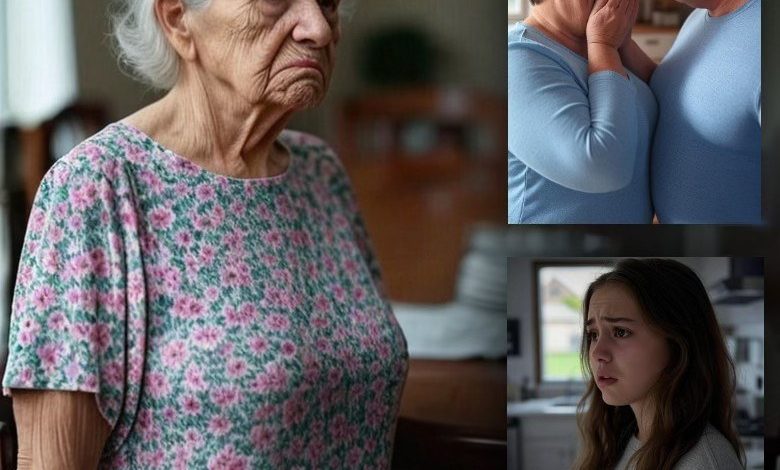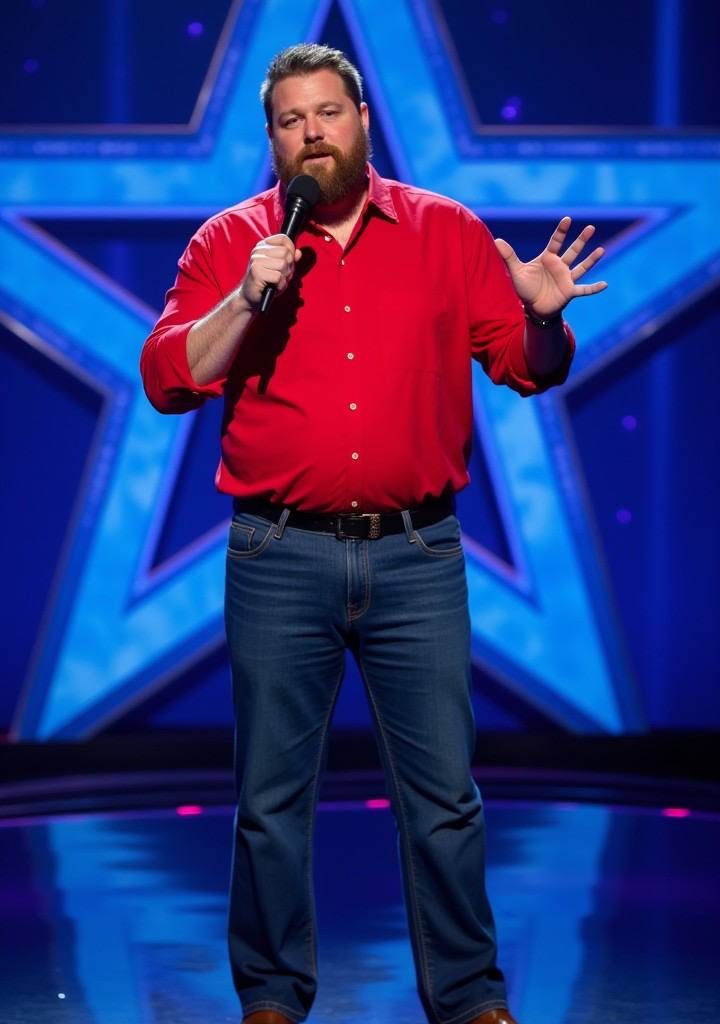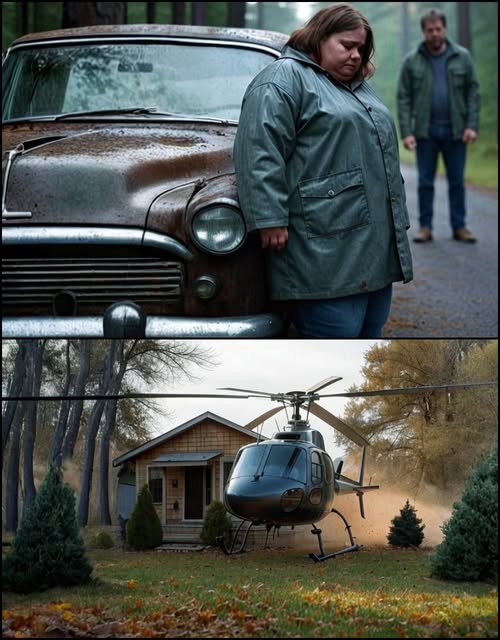
Grandma said a few words to them, and then it happened!
My name is Amanda, and I’m 19 years old. For as long as I can remember, I’ve lived in the shadow of my older brother, Henry. He’s two years ahead of me, and in our parents’ eyes, he could do no wrong. A math prodigy, the golden boy who brought home medals from Olympiads, while I had to fight tooth and nail just to maintain a B average. They never hid their favoritism. When Henry turned sixteen, he got a brand-new car. When I turned sixteen, I got a discounted bicycle from a clearance sale. I remember forcing a smile and saying thank you, but deep down, it broke something in me.
The only person who ever made me feel seen was Grandma. She never forgot my birthday. She’d slip me pocket money when she visited, whispering promises about helping me through college. That promise kept me going during long nights in high school when I questioned whether all the effort was even worth it.
Eventually, I got into a university in another city on a partial scholarship. I moved into the dorms with hope in my heart, waiting for Grandma’s promised support. But the money never came. When I asked my mom about it, she exploded. “How selfish can you be?” she snapped. “Grandma’s having money issues. Get a job instead of begging.” So I did. I started working at a café near campus. They paid little, but I got free meals and cheap leftovers. It helped, but it wasn’t enough.
To make ends meet, I picked up a second job writing articles for websites. Between classes and two jobs, I barely slept. Still, I was constantly behind on bills. When the café closed for a week for cleaning, I nearly fainted from hunger. My roommate Sarah gave me her leftovers, shared her groceries, and even loaned me $500 when my laptop broke. I tracked every cent in a notebook, promising myself I’d pay her back.
Meanwhile, my parents bragged about Henry. How he was too busy with “exams” to come home. We barely talked. When we did text, he seemed distant, vague. But I had my own battles, and I stopped caring.
Then came Grandma’s birthday. I scraped together what I could to buy a small gift—a framed photo of us from my high school graduation—and took the bus back home. The party was in full swing when I arrived. Everyone was there—except Henry. “Studying for exams,” my dad explained.
Grandma’s table overflowed with food. I tried not to look too eager as I filled my plate. We toasted to her, everyone praising her kindness and wisdom. Then my cousin Tyler looked at me and said, “Amanda, you’ve lost so much weight. Are you okay?” My mother jumped in with a laugh, “Oh, she’s probably doing one of those trendy college diets.”
I opened my mouth to correct her, but Grandma spoke instead. “Amanda, aren’t the $1,500 I send you each month enough for food?” My fork dropped. The room went silent.
“What money?” I asked.
“The money I’ve been sending your parents for you,” she said, her brow furrowed. “Every month since you started college.”
All eyes turned to my parents. Grandma’s voice dropped an octave. “Robert. Elizabeth. Would you care to explain?”
My mother stammered, “It’s complicated. Maybe not the time—”
“Now,” Grandma snapped. “Or I go to the police.”
My father sighed, looking defeated. “We’ve been using the money for Henry. He has a gambling problem. We tried therapists, rehab… nothing worked.”
Everything I’d endured—the jobs, the hunger, the broken promises—flashed before me. They had been taking Grandma’s money for Henry, while I thought she had forgotten me.
Grandma stood abruptly. “Everyone, enjoy the rest of the evening. Robert. Elizabeth. My office. Now.”
The party resumed awkwardly after they left. I sat frozen, pushing food around my plate, while my mind spun. Half an hour later, my parents left without saying goodbye. Grandma returned with a calm but unreadable expression.
Later that night, she told me to stay the weekend. The next morning over coffee, she told me everything. She had given my parents over $100,000 meant for my education, assuming they’d use it responsibly. Since my scholarship covered most of it, they kept the remaining $60,000 for Henry. Turns out, he never even went to college. They’d sent him to another city, hoping to separate him from bad influences, but he fell into gambling again. The $1,500 monthly allowance? All of it had gone to Henry. Every cent.
I felt sick. While I worked two jobs, skipped meals, and nearly gave up, they were covering Henry’s losses and lying to me. Grandma’s expression softened. “I’m so sorry. I should’ve checked. From now on, I’ll transfer $2,000 directly to your account. No more middlemen.”
Three days later, I returned to college. The first thing I did was quit my writing job. I kept the café gig on weekends—more for sanity than necessity. I paid Sarah back and bought groceries for the first time in months. I replaced my laptop, joined a study group, and watched my grades rise. For the first time, life felt manageable.
Two months later, Grandma surprised me on campus. “Just making sure at least one of my grandkids is actually in college,” she joked. Over lunch, she dropped another surprise—she had rewritten her will. I was now her sole heir. “Your parents already got their share. I trust you. You’ve earned it,” she said.
A week later, my parents showed up at my dorm unannounced. “We need to talk to Grandma about changing the will,” my dad said. “Henry needs help.” I stared at them. No apology. No acknowledgment. Just a request.
“You’re being selfish,” my mother said when I refused.
“No,” I replied, “you were selfish. For years.” I told them everything—the hunger, the exhaustion, Sarah’s kindness. My father tried to excuse it. “Henry’s sick.”
“And I was your daughter,” I snapped. “You chose him. Again and again. Now live with it.”
They left in silence.
Later, Sarah asked if I was okay. I nodded. “Actually, I am.”
I focused on school, joined a research program, and even went on spring break with friends. Grandma kept in touch, always checking in. Then one day, I got a call. It was Henry. He was in rehab. “I know what happened with the money,” he said. “I’m sorry. I didn’t know back then, but that doesn’t make it right.”
I didn’t know what to say. But I realized something: his apology, for once, felt real.
And for the first time, I knew my life wasn’t theirs to ruin anymore. I was building something new—on my terms. Whatever happened next, I would be okay




